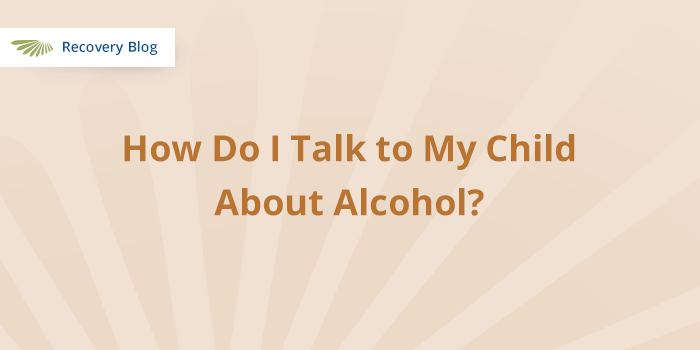6 Best Apps for Overcoming Alcohol Addiction
Addiction is a lonely and difficult journey, but you don't have to be alone on your road to...

Have you had “the talk” with your kids yet? No, not the birds and the bees talk. The other one…about underage drinking. Most parents will tell you that talking to their kids about underage drinking or drug use is a difficult discussion to approach. Yet research continuously shows that parents have the greatest influence on teenage behavior.

Research also shows that the later in life that someone is exposed to alcohol, the less chance they have of developing alcohol use disorder (commonly referred to as alcoholism). The human brain does not stop developing until the mid 20’s. The more maturation that can occur without the damaging effects of alcohol, then the better outcome for that individual. So, there are many researched based reasons to have “the talk” with your kids, and the earlier the better.
“How do I get started? How do I approach my child about this?” are questions that are often asked. To address this issue, the Substance Abuse and Mental Health Services Administration (SAMHSA) has created a campaign called "Talk. They Hear You." which helps parents start talking to their children early about the dangers of alcohol. The campaign includes valuable resources including videos, conversation goals, tip sheets, and an Avoiding Alcohol family agreement form. The campaign also includes an App that will walk you through scenarios and give you guidance on how to respond to various questions that your child will have.
The education and tools are available to you. The only missing element is your motivation. Even with these extensive resources, you might still feel uncomfortable speaking with your child about alcohol. If this is the case, please reach out to one of our professionals at Aquila Recovery, and we can help guide you on what might be one of the most important talks you ever have with your child.
Addiction is a lonely and difficult journey, but you don't have to be alone on your road to...
Many people find that they experience depression after quitting drinking alcohol. How are alcohol...
Addiction is a difficult topic to talk about, especially with children. But it is important to...